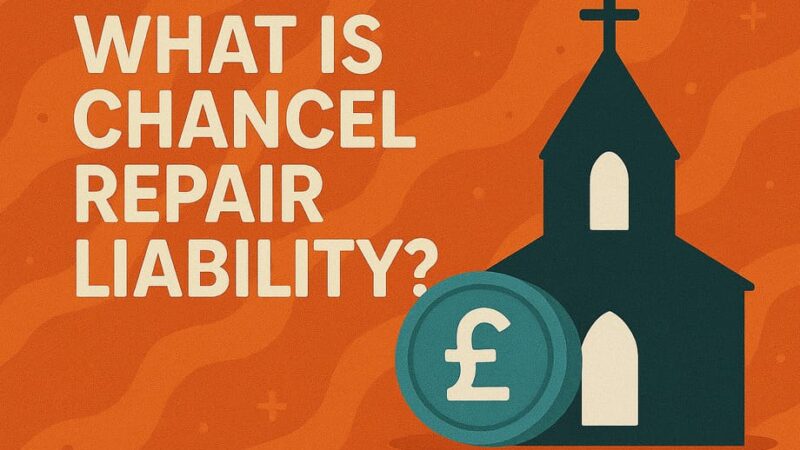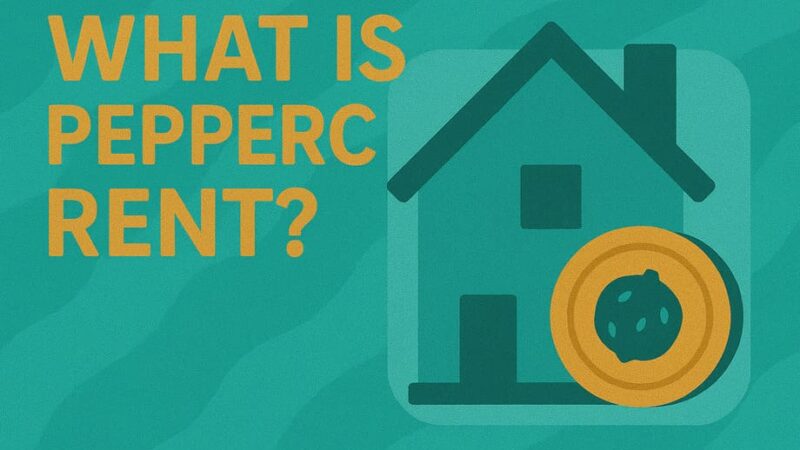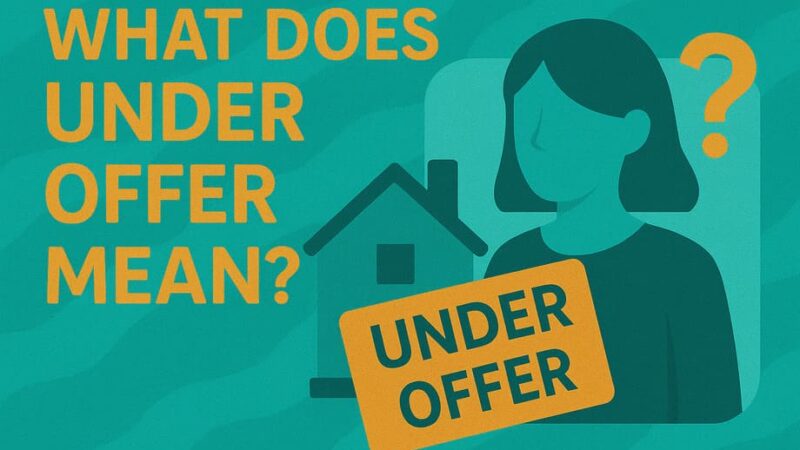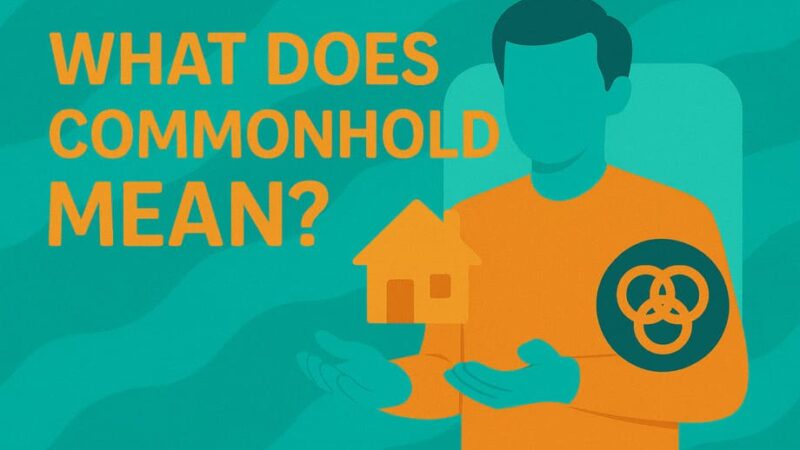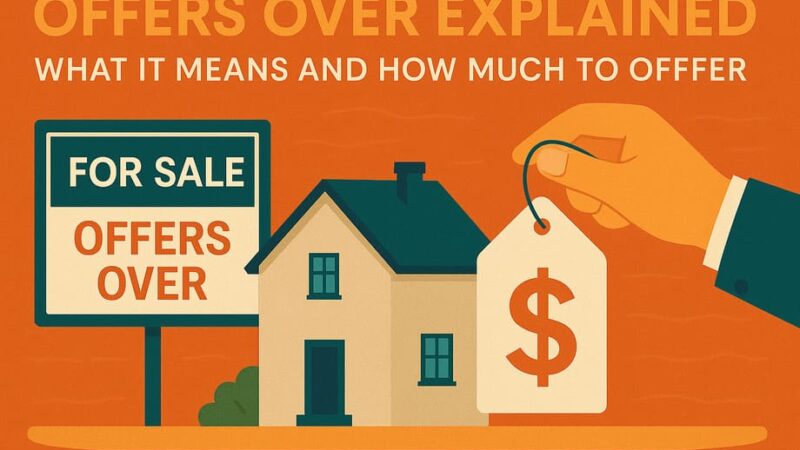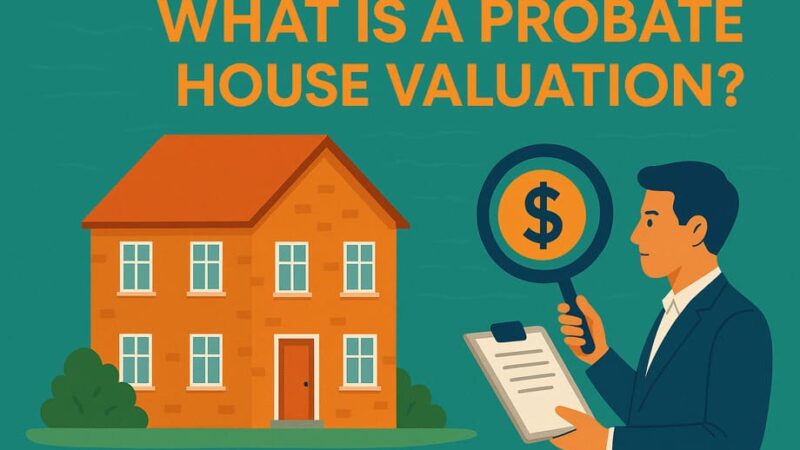How Much Are Conveyancing Fees? Complete Guide
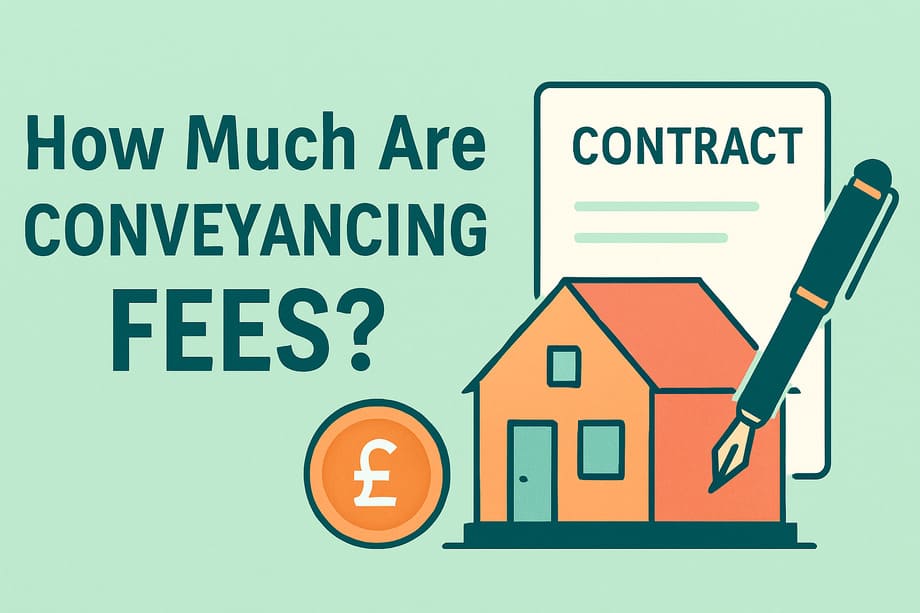
If you’re buying or selling a property, one of the first ports of call is looking for a conveyancing solicitor who will not only do a good job but also charge a reasonable price.
When it comes to buying a property, it’s not just the mortgage you need to worry about. The following costs usually need to be paid before you can think “home, sweet home!”
We take a look at conveyancing fees and what you can expect to pay in 2025.
Average Conveyancing Fees (2025)
Property Solvers’ annual research of 100 firms (in England and Wales) has revealed that average conveyancing fees in 2025 stood at £1,190.52 and £1,256.23 (inclusive of VAT) for a freehold tenured property sale and purchase.
Average conveyancing costs for leasehold property conveyancing services for sales and purchases stood at £1,505.80 and £1,586.65 respectively (inclusive of VAT).
The average cost to remortgage a property stood at £741.67 (inclusive of VAT).
Average conveyancing fees when buying a house range from around £400-£1,500 plus disbursements, according to Reallymoving. These disbursements could add on up to £700 or even more.
Average conveyancing fees when selling a house are around £610-£950.
However, conveyancing fees for a leasehold property are usually £300 more.
While the average conveyancing fees when buying and selling a house in the UK is £2,380 (including disbursements).
Conveyancing Fees Since 2021
The chart below demonstrates how conveyancing fees have grown since we started tracking the above data since 2021 (i.e. the last 5 years).
What Are Conveyancing Fees?
Conveyancing fees are what get paid to a legal professional to manage the purchase or sale of a property.
In most cases, we would recommend you use a qualified conveyancer to properly manage the sales process. You’ll also avoid potentially expensive mistakes.
Rarely is a ‘do it yourself’ approach recommendable.
The conveyancing fee is split into two parts:
- The actual tasks of dealing with all the legal aspects of the sale;
- The disbursements or third-party expenses involved during the sale.
If the sale comes with a number of complications, there may be extra conveyancing-related costs to bear in mind.
It’s the process of transferring property ownership from the seller to the buyer, making the purchase and sale legal.
Once you’ve had an offer on a property accepted, you’ll need a conveyancer. They’ll carry out all paperwork, property checks, sort the bank transfers and transfer the title deeds to the buyer.
How Much Are Conveyancing Fees?
With so many firms out there, shopping around for the best conveyancer may seem confusing.
Ultimately, what you end up paying is often based on:
- Whether you’re using a conveyancing solicitor or licenced conveyancer. The latter is generally cheaper;
- If you’re using an online conveyancer. Although these firms generally charge less, they have been known to offer inferior service levels;
- How expensive and where your house is. Generally, buyers and sellers of larger properties in more affluent areas would pay more;
- Where in the country the conveyancer is based. Typically, the further north you go, the cheaper the fees are;
- The complexity of the sale and if it forms part of a chain;
- If you’re buying or selling a leasehold property. The charges will be higher due to the extra checks required;
- If you’re buying or selling a shared-ownership property, the conveyancer may bump up the fee to handle secured debts owed back from the sale, deal with the extra enquiries and other issues. Similarly, if it’s purchase from the council (under Right to Buy), most conveyancers will want a higher fee;
- Whether the deposit partially funded by the Help to Buy scheme or financial gift. Here, the extra checks and legal processes will be chargeable;
- If you’re buying or selling a new build, there may be extra investigations required (particularly the surrounding land) meaning the conveyancer charges more;
- If the conveyancer / conveyancing solicitor is not on the mainstream mortgage lender’s panel, extra fees are likely to apply;
- Whether this the sale is for cash. In this scenario, the conveyancer would not need to deal with drawing down mortgage finance and should charge less;
- If there are potentially complex issues involved such as encumbrances, overage clauses, restrictive covenants, positive / negative easements amongst others.
As with most things in life, we’d recommend searching for a balance between good quality service and a reasonable price.
Conveyancing and legal costs
You will need to instruct a solicitor or registered conveyancer to do the legal work for you and their fee will depend on the type of property that you are buying (either leasehold or freehold) and the property price. They generally offer a fixed fee or a fee based on a percentage of the property price.
You should expect that when you ask the solicitor to do the work for you, you will need to give them some money ‘to hold on account ‘ to cover the initial costs. The balance of the fees will need to be paid before the property purchase completes. They will send you ‘completion statement’ which will show all the costs that have been incurred along with a total amount that you will need to pay before the property is yours.
The solicitors will also have to pay for information and checks for which you will need to cover the costs, these are generally known as disbursements. These includes ‘searches which will be required by your lender as they may affect the potential future value of the property. All of the searches normally cost £150 -£250.
Disbursements
The majority of the fee goes towards the conveyancer’s time/effort, but there are also extra costs known as ‘disbursements’.
These are the administrative costs or overheads necessary to process the house sale.
Most solicitors should charge you at cost (i.e. not make any profit). However, you’ll probably need to pay for the disbursements up-front.
Below are the prominent ones. We’ve also indicated whether the buyer, seller or both would be liable:
Anti-Money Laundering (AML) Checks
This consists of an online verification to confirm your identity (using certified identification that you’ll have to supply).
As it’s a requirement for our own checks here at the Property Solvers Quick Estate Agency, we usually pass this on to the conveyancers on your behalf (meaning that you don’t have to pay this cost).
Note that separate AML checks need to be done on every owner.
Title Register (Deed) / Plan
The Title Register (Deed) contains essential details of the property as well as confirming ownership, restrictions, notices and legal charges against the property.
The Title Plan is an outline sketch of the property, demarcating boundaries.
The conveyancer must download up-to-date official copies of these documents (known as ‘Office Copy Entries’).
Property Fraud Check
Sometimes, especially if a company is involved in the sale, it’s wise to check that it’s legitimate.
Alarm bells should ring if your conveyancer sees that there are previous convictions for fraud.
Bankruptcy Fraud Check
Similar to checking if the buyer/seller is a corporate entity, your conveyancer may suggest that you undertake bankruptcy checks to confirm that there’s nothing untoward.
We would suggest that the conveyancer undertakes both fraud and bankruptcy checks early in the process to avoid getting too deep into the sale.
Searches
Conveyancing searches are series of legal checks undertaken by the buyer’s conveyancer.
They tend to vary in price and will usually be grouped together.
Local Authority Search The local council will provide a report which shows information such as any planned development work or existing disputes that affect the property you want to buy and who is responsible for maintaining roads and pathways around the property. The costs vary by Local Authority but expect to pay upwards of £150.
Land Registry Search These will check that the person who is selling you the property is the legitimate owner of the property and is able to it to you. They will get a copy of the title register and title plan that is held at the Land Registry.
Environmental Search An environmental search is important as it will establish whether the property you are buying is built on or near contaminated land or water, or an old landfill site, it should also show whether there is a risk of flooding.
Water Authority Search A water authority search will show where your water comes from, where it drains to and whether there are any public drains on the property.
Mining Search In some areas, such as those where mining takes place or used to take place, you will need a specific search to check if there is anything that affects the property.
Chancel Repair This dates from the middle ages when property owners used to pay to maintain the Parish churches and in some cases this liability may continue. Solicitors will normally recommend an indemnity policy (normally costing about £20) to cover against any potential liability.
HM Land Registration Fee (Transferring Ownership)
There’s a fee payable to HM Land Registry upon the property’s transfer from the seller to the buyer.
This is a variable cost based on the value of your property and whether it’s a new build.
Bank / Telegraphic Transfer (CHAPS) Fees
Prior to exchange of contracts, the buyer will need to transfer deposit funds (or the full purchase price of it’s a cash purchase).
To get this done in one go (rather than separate sums), there will usually be a CHAPS (Clearing House Automated Payment System) fee.
With mortgaged purchases, there will be further transfer fees for funds going from the lender to the solicitor’s accounts and then on to the seller’s account.
Pre-Completion Check
An OS1 search is undertaken which ensure the seller has and will not secure any charges against the property.
Share of Freehold Acquisitions
As most freehold interests are held in Limited companies, the conveyancer will have to work with the freeholder to add the buyer on to the Memorandum of Association and Articles of Association.
In addition, a new share certificate will need to be issued and submitted to Companies House.
Leasehold Disbursements
Alongside the standard legal fees and disbursements, there some extras that should be considered with the sale of a leasehold property.
Leasehold Sale Pack
The buyer’s conveyancer will need to request this from the freeholder and/or management company.
It will contain essential details regarding the lease including ground rent, service charges, management company information, annual accounts (for at least 3 years), sinking fund management documentation, details of pending works etc.
Note that separate leasehold sale packs will be required if the Ground Rent and Service Charges are collected by different companies.
Landlord Notice Fee
The freeholder will be notified that the ownership will be changing from one leaseholder to another alongside the registration of a charge (usually a mortgage) against the property.
Deed of Covenant
This is a legal agreement that establishes the relationship between the leaseholder and freehold management company.
It often requires a series of background checks and confirmations of what can and cannot be included in the agreement.
Landlord Engrossment Fee
The freeholder or landlord may charge to produce a fresh lease which the buyer will need to be paid for.
Certificate of Compliance
This certificate is required if there is a restriction in favour of the freeholder and/or the management company that prevents the buyer from registering as the new owner.
It essentially confirms that the buyer will be legally committed to the terms laid out in the lease (including any conditions or restrictions).
Note that it is the job of the freeholder / management company to issue the Certificate of Compliance to the Land Registry. This will remove the restriction and the sale can proceed.
Notice of Transfer Fee
The freeholder and management company may want confirmation of the new leaseholder’s details to ensure that they know where to forward future payment requests.
Notice of Charge Fee
The freeholder may want confirmation of the mortgage or any other legal charges against the leasehold property.
‘Non-Standard’ Expenses
If the buyer’s conveyancer requires to undertake extra tasks that go beyond what’s normal when dealing with a leasehold sale, there may be extra charges.
Examples may include extra requests for income statements or sinking fund details, checking lease extensions, charging orders, compliance with rent charges, multiple titles, title defects and issues surrounding common facilities.
Extra Conveyancing-Related Costs
There may be a few additional costs that you may incur, particularly if the sale is more complex than standard.
In our experience, most conveyancers take it as a given that there will be complications.
Nonetheless, it’s worth making sure you have a good idea of what you’ll be paying from the start.
Delayed Completion
If the buyer or seller wishes to extend the period between exchange and completion day, there may be an extra charge.
This is because conveyancers often like to finish cases off completely. There may need further time to return to the case and deal with the completion.
Guarantor Involvement
The conveyancer may wish to charge extra if the buyer is using a guarantor mortgage.
The lender will the buyer’s conveyancer to provide various pieces of information in relation to the guarantor’s solvency.
Indemnity Insurance
If you’ve lost important documentation or there are unresolvable legal issues (often dating back decades), the buyer may insist that an indemnity insurance policy is in place.
Unregistered Property Fee
If the property is unregistered at HM Land Registry, extra conveyancing work will be required to prove or establish ownership.
Things may get complicated if it’s an inherited / probate property as you may need to get other departments or firms involved.
Defective Title
If the conveyancer discovers something is missing or intentionally omitted from the title, it will need to be ‘repaired’ (legally speaking) before proceeding with the sale.
Examples may include if there is no right of way or issues related to shared drainage, sewer or road access.
Acting for the Lender
There are some lenders that will only deal with certain conveyancing solicitors (usually the ones that have a minimum number of partners).
In these circumstances, conveyancers often work with other professionals.
In our experience, many conveyancers will absorb the extra costs themselves to keep your business.
Help to Buy Scheme
Due to extra checks and processes to follow under this government initiative, your solicitor may want to charge an additional fee.
Lifetime or Help to Buy ISA
If you’re claiming these funds to put towards the purchase of your property, the conveyancer may make a supplementary charge.
Gifted Deposit
This kind of financial assistance typically comes from the buyer’s friends and family.
In addition to the standard anti-money laundering checks, there’s a legal requirement to demonstrate that these funds are coming from a legitimate source.
New Build Property
With new build sales (buying a property directly from the developer or part-exchanging), it’s often wise for the conveyancer to make extra checks about the surrounding land alongside the finished product and warranties.
Many new build leasehold property owners have had serious nightmares with escalating ground rents and service charge obligations.
A good conveyancer will flag these issues with you from the start. However, they may want charge more to engage in a deeper analysis of your case.
How to Find the Best Value Conveyancer
As with any service, you’ll often pay for what you get.
Cheaper services often leave people disappointed with the ‘conveyancing by numbers’ approach and lack of attention.
Most conveyancers will charge a fixed fee, only due once the sale is complete. Some, however, may charge a percentage (usually around 25 to 30%) after the property goes from Under Offer to Sold STC. This usually goes towards the ongoing costs of managing the case (rather than the firm’s profit as a business).
Above all, remember to get the total costs (including disbursements) up-front and in writing.
Here are a handful of tips to help you find a good firm at a cost that won’t break the bank…
- Make sure you shop around and get a good feel for the conveyancing market;
- Talk to friends and family;
- Ask your mortgage broker, bank manager or Independent Financial Advisor (IFA);
- Check out review sites like Trust Pilot, Feefoo, Reviews.co.uk and Google Reviews;
- Speak to your estate agent or property buying company. For instance, here at Property Solvers, we work with reasonably-priced conveyancing partners who we have worked with for nearly 2 decades.
If you’re still undecided, you can always get on the phone to talk to the firm directly.
Questions to Ask the Conveyancer
Some questions worth asking include:
- Simply, how much will they charge? Make sure you confirm the extra costs, known as disbursements. For example, solicitors have to pay up-front for expenses such as Land Registry checks and searches;
- Can they send over a full breakdown of both the fixed and variable fees? Making they hide nothing and you read the small print;
- Will the fee include VAT?
- Will the fee will only be due upon completion (no sale, no fee)? If the conveyancer insists on payment up-front (other than for disbursements), make sure this will be held in the firms’ ‘escrow’ or ‘client’ account. Also check that you’ll get a refund should the sale collapse;
- How long has the firm been established?
- If your case is more complex, does the conveyancing firm have the necessary experience?
- What’s the average time for the sale to exchange / complete? Can they demonstrate how they’ve met these timescales in recent history? Having a fast solicitor is crucial, especially if you’re selling to a ‘we buy any home’ type company like ourselves (we’ll pay your legal fees) or through an auction. If you’re buying, make sure the conveyancer can work to specific deadlines;
- Can they provide a deadline for exchange / completion for your sale?
- Are they on the mortgage lenders approved panel? If they are not, then you may end up paying extra (as the solicitor will have to partner with another legal representative that does);
- It’s always worth checking that the firm you use is a member of the Law Society and the associated Law Society’s Conveyancing Quality Scheme. You should also check the Solicitor’s Regulation Authority (SRA) website. Conveyancers must be members of the Council for Licenced Conveyancers (CLC);
- How will they communicate with you and keep you updated? You don’t want automated responses all the time should demand someone to answer your questions whenever you need. At the same time, be careful not to bug them too often so that it impedes them actually getting on with work;
- In line with the Solicitor’s Regulation Authority guidelines, are their fees presented transparently?
- What kind of case-tracking processes do they have in place?
- Would they be able to offer any assistance out of hours (evenings and weekends)?
- Will you have one point of contact who will deal with any issues they have?
- Who will deal with your enquiries if your direct point of contact is absent (day off, on holiday etc.)? How will they be briefed?
- What kind of caseload do they currently have? It’s best to avoid a firm that is super-busy so that your case doesn’t end up neglected;
- Is all the essential case progression manageable from a distance? You don’t want a situation where you have to visit the conveyancer’s office unnecessarily;
- Is the conveyancer office based? We’ve noticed that conveyancers (usually solicitors) that are based between offices and attending court can be hard to get hold of;
- With mortgage-funded purchases, will there be an extra charge to liaise with the lender and redeem the mortgage? There shouldn’t be any extra charges as most people access mortgage finance;
- Is the conveyancer willing to communicate to your estate agent throughout the sale? The agent can then help chase things up where necessary;
- If you’re selling a leasehold property, how much extra will they be charging?
- What would happen if the sale was to fall through? Although you’ll probably be liable for disbursements costs, the conveyancer may charge you ‘abortive’ costs;
- How conveyancers receive their fee? The seller usually pays from the proceeds of sale (alongside the estate agency fees). The buyer’s conveyancer would usually send an invoice, due on completion;
- Does the conveyancing firm have a complaints procedure in place?
Surveys and reports
As well as checking all of the paperwork, it is always recommended that you have a survey of the property undertaken. This will give you independent professional advice as to its condition, and highlight any potential issues or concerns. It is always recommended to use a Royal Institute of Chartered Surveyors (RICS) member to do the report for you. The cost will vary substantially depending on the type of survey, the location, condition and size of the property.
There are three main types of survey inspection which increase in detail.
- Home Condition Report
- Home Buyer Report
- Full Building Survey
Fixed fee conveyancing
All our chosen Conveyancing firms offer fixed fees so you have peace of mind knowing that there are no hourly rates nor hidden charges.
With Co-op Legal Services the residential conveyancing fee you are quoted for the agreed work is the fixed conveyancing fee you pay. No hourly fees. No hidden rates. We can provide some of the lowest Residential Conveyancing fees available. Best of all, once we have provided you with a written fixed fee Conveyancing quote for the agreed work, that price will not change. Often other Solicitors or Conveyancers charge hourly rates as well as fees for any letters and phone calls they make to you. It’s best to shop around and get a few Conveyancing quotes so you can consider the additional extra costs you may have to pay, particularly when you compare Conveyancing quotes online.
Fixed fee conveyancing means you agree a price at the outset that you will pay your conveyancer for their services. However, the ‘fixed’ fee relates to the conveyancer’s work. And while the cost of disbursements you’ll need to pay should be in your quote, this cost could increase if, for example, you need more searches.
No sale, no fee guarantee
Some conveyancing solicitors may offer a ‘no sale, no fee guarantee’. This means that if your sale falls through, you won’t have to pay the full conveyancing bill. Some may waive the legal fees, but it’s wise to get a clear explanation of what the guarantee covers before you hire their services.
Sometimes when buying or selling a house things don’t always go according to plan, that’s why your appointed Conveyancer provides a No Sale No Fee Guarantee. This means that if your property purchase or property sale were to fall through for whatever reason, that you won’t be liable for the legal fees and will only have to pay for third party costs which have already been incurred.
If for any reason your property purchase or house sale falls through, you will not be responsible for the legal fees and will only have to pay for third party costs which have already been incurred. Moving home when you are part of a chain involving other property buyers and sellers can be stressful. The chain could break down and unless you have chosen a Conveyancing service which provides a No Sale No Fee Guarantee you may end up paying a lot more to move.
Online conveyancing
Online conveyancing is when the legal process of buying or selling a property takes place solely online or over the phone. You won’t meet your conveyancer face to face. However, some High Street conveyancers offer online aspects to the conveyancing process which can speed things up.
Here are some of the ways online and traditional conveyancing compare:
Local knowledge: A traditional estate agent may have good relationships with local estate agents. Although a good conveyancer should offer an excellent service whether or not they have local connections.
Cost: Online conveyancing quotes may be cheaper but don’t fall into the trap of seeing a cheap headline quote, then discover later on that you need to pay for lots of add-ons that push up the cost of conveyancing. Read more in our guide on What to expect from online conveyancing.
Speed: Online conveyancing can be faster due to the efficiency of online document management.
Service: Traditional conveyancing typically offers a more personal service and you’ll usually have one point of contact. With online conveyancing, you may speak to a different person each time.
When you instruct a conveyancer
When you instruct a conveyancer or solicitor, you’ll usually need to send them an upfront payment on account. This is typically £250-£500 but may be more depending on the conveyancer and if you’re buying a leasehold property.
This payment on account covers costs such as anti-money laundering checks, getting a copy of the title deeds from the Land Registry and applying for local authority searches. You’ll usually then pay the rest of your conveyancing fee on completion.
Remember: if you are not satisfied with the service from your conveyancing solicitor, it is usually possible to change solicitors. If you are unhappy with your final bill and think you have been overcharged, you have a right to complain.
Buy to Let solicitors fees
When you purchase an investment property, you’ll have to pay Buy to Let solicitors fees to cover the costs of the conveyancer handling the legal site of your purchase. Buy to Let conveyancing costs depend on a number of factors such as the property value, the location and whether additional work is required, such as searches due to a nearby river or coal mine. Average solicitor fees for a Buy to Let are around £850-£1,500 but they can be higher for leasehold properties.
On top of this you will need to pay additional fees such as for local authority searches. Read more in our guide on Buy to Let conveyancing.
Make sure you get a number of Buy to Let conveyancing quotes. Use our handy tool to get instant quotes from regulated and reviewed conveyancing solicitors that cover your area.
New build conveyancing
New build conveyancing can be more complex as you’ll be buying a property that hasn’t been completed yet. There’s a reservation fee to deal with, usually a short deadline to get to exchange of contracts, then there will be more work to be done to get you to completion once your home is ready.
New build solicitor fees will vary depending on for example the value of the property, whether it’s leasehold and whether you use a solicitor or a licensed conveyancer.
Developers will sometimes offer to cover your new build solicitor fees. But before agreeing to have the house builder contribute to or pay your legal fees, make sure this doesn’t come with strings attached. Often the house builder will have an arrangement with a legal firm. But you should not feel obliged to use them. Shop around for the best legal firm. A good place to start is our guide to new build conveyancing.
And as the process of buying a new build is different to buying an older property, it’s advisable to use a conveyancer who is experienced in this type of property.
If you’re buying a new build leasehold flat, you’ll find useful information in our guide Leasehold conveyancing: Fees, process and how long it takes.
Frequently Asked Questions
What is conveyancing? Conveyancing is the legal process to transfer the ownership of a property from one person to another. The conveyancing process starts when an offer on a house is accepted and finishes when the buyer receives the keys. Find out more in our guide Conveyancing process explained for buyers
How much do conveyancing fees cost? Average conveyancing fees when buying a house range from around £500-£1150 plus disbursements. These disbursements could add on up to £700 or even more. While conveyancing costs when selling average between around £610-£950. But fees can vary widely so make sure you compare conveyancing quotes. Use our conveyancing fees calculator to get instant quotes from quality assured firms in your local area.
What is fixed fee conveyancing? Fixed fee conveyancing means you’ll pay a fixed price for conveyancing fees that you are quoted at the outset. But ‘fixed’ usually relates to the legal services provided not disbursements. Disbursements should be included in the quote but for example if more searches are required this cost will increase. So make sure you compare conveyancing quotes. Get instant quotes from quality assured firms in your local area with our handy tool.
Should I use a solicitor or conveyancer? Licensed conveyancers are specialised in property transactions and it’s their main focus. In most cases, a conveyancer will be able to handle your transaction from beginning to end. Solicitors can charge higher fees than conveyancers as they are able to offer a full range of legal services. But in some circumstances, for example where you are selling as part of a divorce, instructing a solicitor may be the best bet. Find out more in Find the right solicitor or conveyancer.
Do I need a conveyancing solicitor? While it’s not a legal requirement that you hire a conveyancing solicitor, it’s a very specialised skill and your mortgage lender may insist that you use a professional. However, it is possible to do conveyancing yourself if you don’t have a mortgage.
Do I need a conveyancer for remortgaging? Whether or not you have to pay remortgaging conveyancing fees depends on your lender and circumstances. Find out more in our guide: Remortgaging: Do I need a conveyancing solicitor?
The average conveyancing fee when buying and selling a house is £2,380, according to Reallymoving’s Conveyancing Costs Index Q2 2024. This is an increase of 10.2% compared to Q1. Reasons for the rise of conveyancing fees include inflation and rising house prices.
The best way to save on conveyancing fees is to shop around and compare quotes. Users of our panel save on average £490 on their conveyancing fees.
Last Updated on August 26, 2025 by James Cartwright


